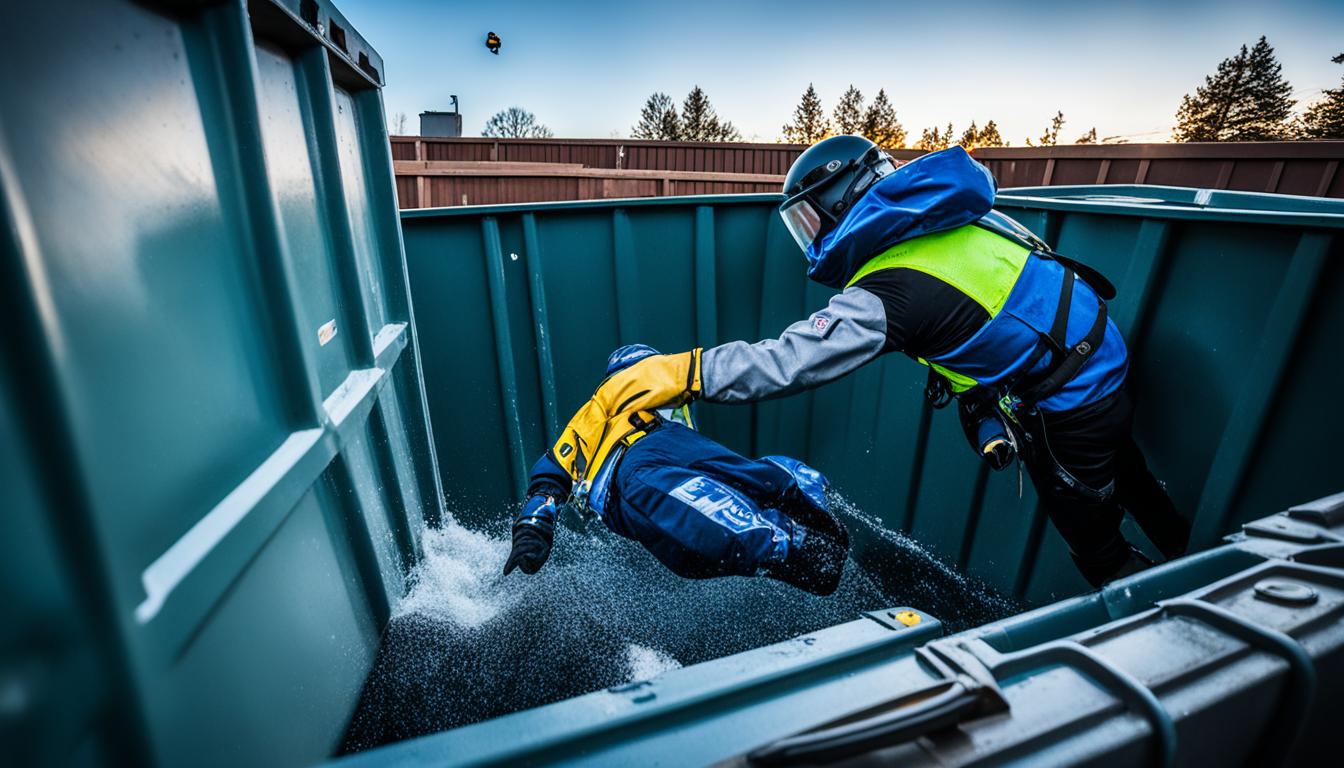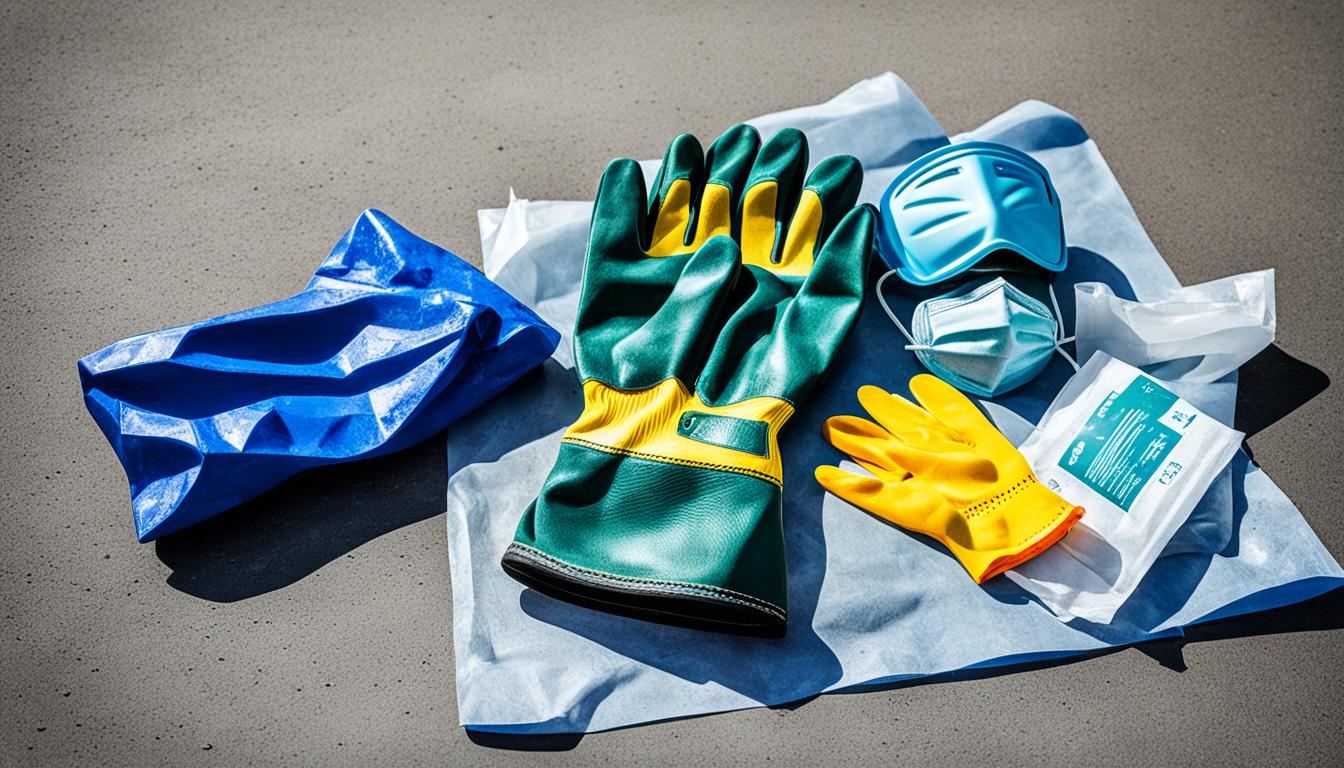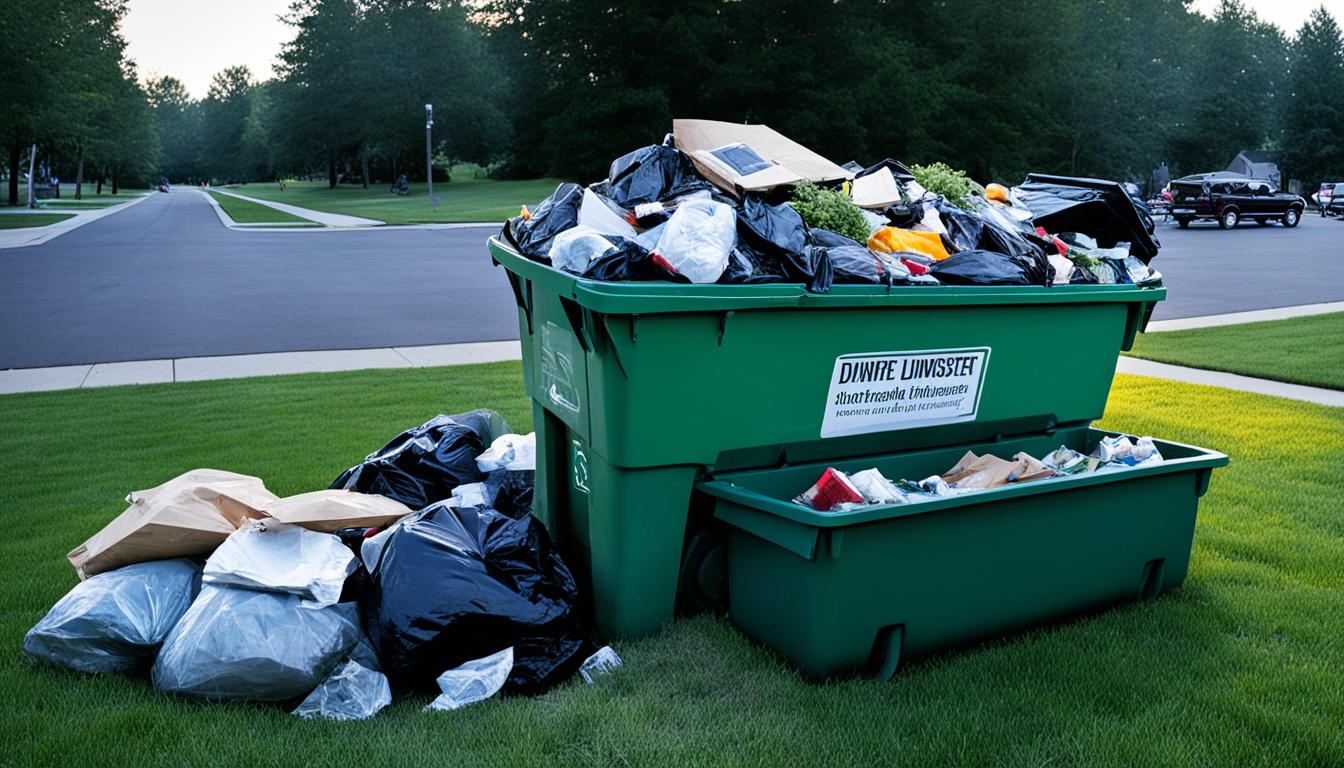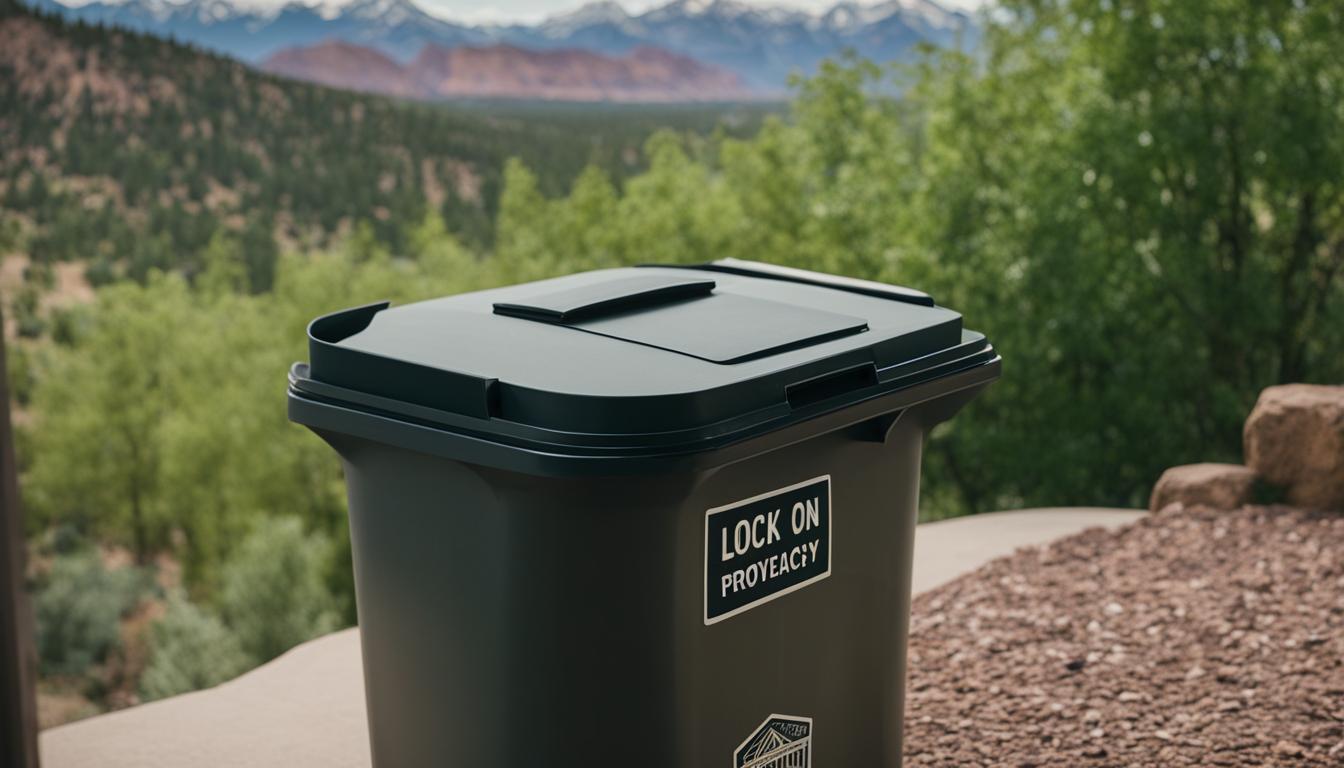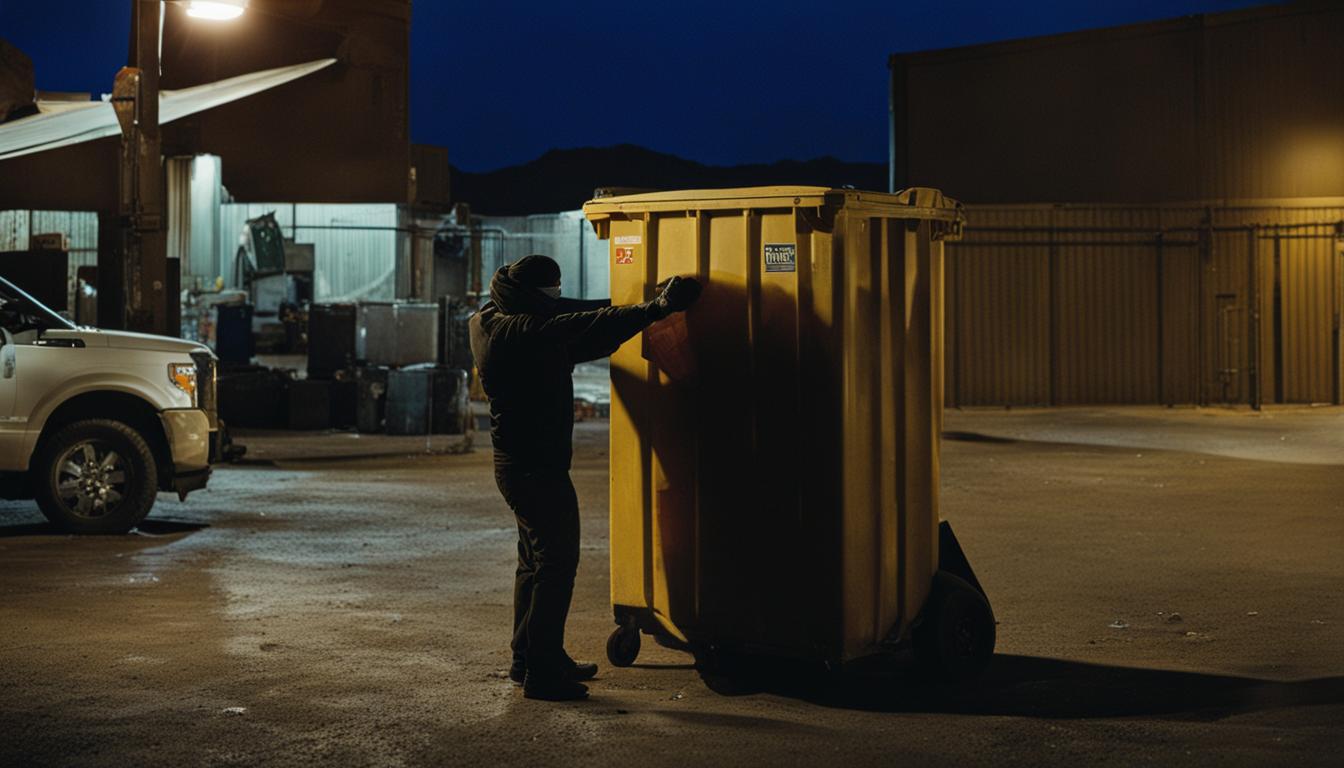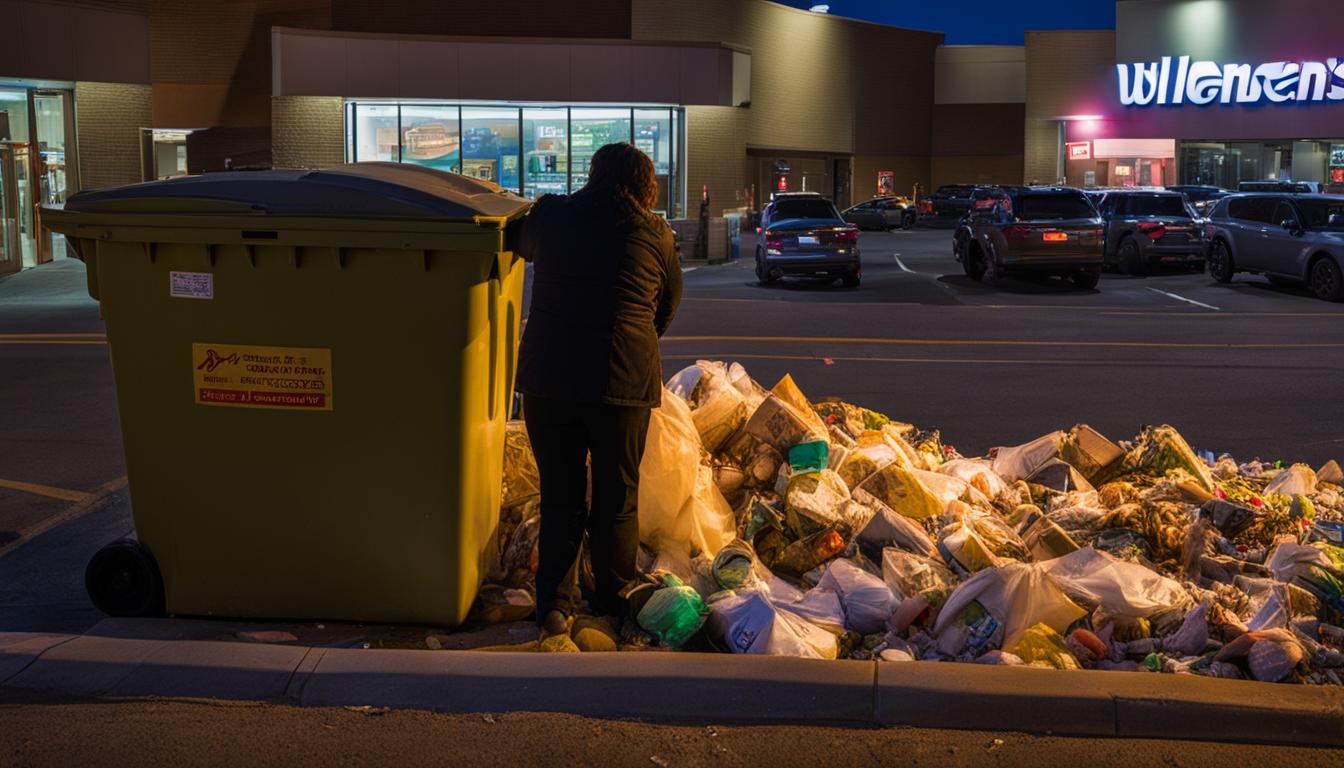Disclosure: This Post Contains Affiliate Links; We earn a commission on purchases.
Dumpster diving can be an exciting and rewarding activity, but it’s important to prioritize personal safety while scavenging. Whether you’re a seasoned diver or just starting out, taking safety precautions is essential for a positive experience. In this article, we’ll provide some valuable tips to help you stay safe while diving into dumpsters.
Key Takeaways:
- Know the local laws and regulations regarding dumpster diving to understand any potential legal risks.
- Scope out dumpsters in low-visibility areas and plan your dives for early morning or evening hours.
- Familiarize yourself with the types of items to look for and be mentally prepared for the less glamorous aspects of dumpster diving.
- Stay vigilant during your dives to avoid surprises from onlookers or authorities.
- Leave the area clean after you’re done to respect the space and reduce the impact on the environment.
Familiarize Yourself with Local Laws
Before you embark on your dumpster diving adventures, it’s essential to familiarize yourself with the local laws surrounding this activity. While dumpster diving is not explicitly illegal in most places, there are potential legal risks and considerations to keep in mind.
Although trash is generally considered abandoned and not private property, there are still offenses that dumpster divers can be charged with. These may include invasion of privacy, trespassing, or vagrancy, depending on the local laws and regulations in your area.
While the chances of being charged with theft are minimal, it’s important to exercise caution and be aware of your surroundings. Look out for signs of heightened security such as fences, locks, or “No Trespassing” warnings, as these indicate locations under tight scrutiny and best avoided.
By understanding the legal risks involved, you can ensure that your dumpster diving activities stay within the boundaries of the law and minimize any potential issues.
“Before you start diving into dumpsters, make sure you’re well-versed in the legal landscape. Being aware of the potential legal risks can help you remain safe and avoid unnecessary complications.”
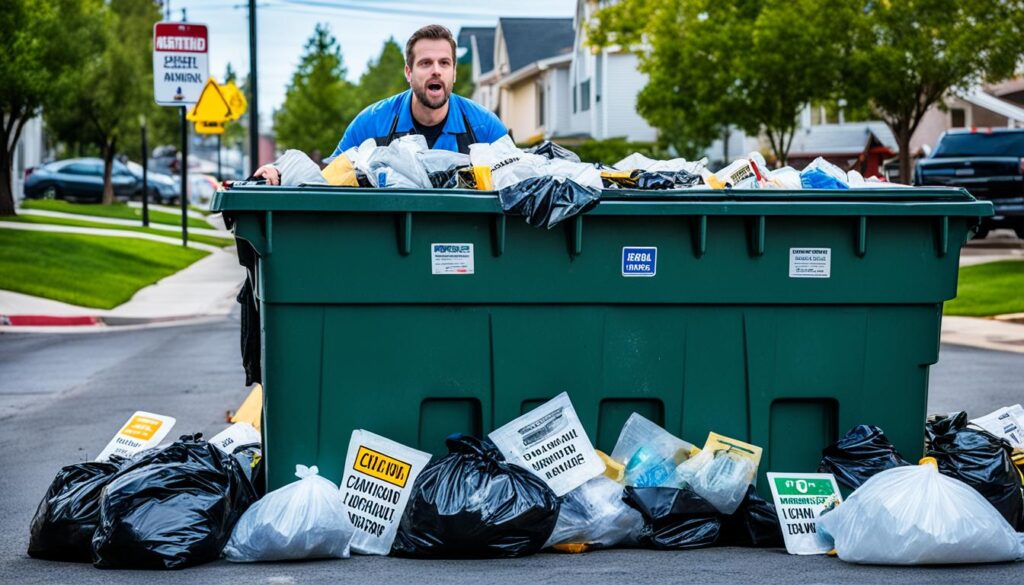
Legal Risks Associated with Dumpster Diving
While dumpster diving can be a rewarding endeavor, it’s crucial to be aware of the legal risks you may face. These risks primarily revolve around potential offenses such as:
| Offense | Explanation |
|---|---|
| Invasion of Privacy | Going through someone’s dumpster without permission may be considered an invasion of their privacy. |
| Trespassing | Entering private property to access dumpsters, especially if there are signs prohibiting entry, can be considered trespassing. |
| Vagrancy | In some areas, authorities may consider dumpster diving as evidence of homelessness or vagrancy. |
Although the likelihood of being charged with these offenses is relatively low, it’s crucial to exercise caution and respect private property rights. Always be mindful of the areas you’re diving in and use common sense to avoid any legal complications.
Scope Out the Dumpsters in Your Area
When it comes to successful dumpster diving, knowing where to find the best trash receptacles is key. While dumpsters outside major businesses are often a great place to start, don’t limit yourself to just those locations. Consider expanding your hunting radius to explore dumpsters in urban neighborhoods, schools, churches, parks, and even beaches. You never know what hidden gems you might uncover.
To maximize your chances of finding valuable items, it’s crucial to research the trash pickup times in your city. By knowing the schedule, you can plan your diving expeditions accordingly. Try to time your visits to dumpsters that are likely to be full and haven’t been emptied yet. Early morning or evening hours are usually the best times to go diving, as most people are occupied, minimizing the risk of being detected.
Here’s an example of a table that shows the trash pickup times for different neighborhoods in a city:
| Neighborhood | Trash Pickup Days | Pickup Times |
|---|---|---|
| Downtown | Monday, Thursday | Morning |
| Residential | Tuesday, Friday | Evening |
| Suburbs | Wednesday, Saturday | Afternoon |
By referring to this table, you can determine the best days and times to visit different neighborhoods’ dumpsters, increasing your chances of finding discarded treasures.
Remember, always be respectful while diving and leave the area cleaner than you found it. Happy hunting!
Know What Items to Look For
When it comes to dumpster diving, public trash disposal sites can be a treasure trove of valuable finds. From designer clothing to valuable scrap materials and even outdated electronics, you never know what hidden gems you might stumble upon. Exploring the refuse of high-end establishments can yield surprising results, providing an opportunity to obtain items that would otherwise be out of reach.
To enhance your chances of discovering valuable items, it’s essential to have a basic understanding of what’s out there and where you’re likely to find it. While you might find designer clothing in the dumpsters of upscale fashion boutiques, keep an eye out for valuable scrap materials near manufacturing facilities or construction sites. And don’t forget to peek around dumpsters in residential areas, as old furniture and appliances can often be valuable finds.
Remember, dumpster diving isn’t just about finding discarded treasures—it’s also about reducing waste and giving discarded items a second life. By focusing your search on specific items of interest, you can make your dive more efficient and increase the chances of finding something truly valuable.
Examples of Valuable Items Found Through Dumpster Diving
| Item | Description |
|---|---|
| Designer Clothing | Exclusive, high-quality garments from luxury brands. |
| Valuable Scrap Materials | Metals, plastics, and other materials that can be recycled or repurposed for profit. |
| Outdated Electronics | Smartphones, laptops, and other electronic devices that can still be functional or sold for parts. |
| Antique Furniture | Rare and valuable pieces from different eras. |
By keeping an open mind and knowing what items to look for, you can turn dumpster diving into a worthwhile and potentially lucrative venture. Always remember to respect private property, follow local laws, and leave the dumpster area clean before moving on to your next exciting diving expedition.

Prioritize Personal Safety during your Dive
When engaging in dumpster diving, it’s essential to prioritize your personal safety at all times. Preparation plays a key role in ensuring a safe and successful dive. Mentally prepare yourself for the less glamorous aspects of scavenging, and keep in mind the importance of reducing waste and giving discarded items a second chance.
Wearing appropriate clothing is crucial during a dive. Dress in older, comfortable clothing that you don’t mind getting dirty or torn. This will protect your everyday clothes and keep you comfortable as you explore dumpsters. Additionally, it’s important to wear sturdy shoes or boots to protect your feet from any sharp objects or hazardous substances.
Protective gear can play a vital role in ensuring your safety. Consider bringing thick gloves to shield your hands from potential cuts or contaminants. A small stepping stool can help you reach into deeper dumpsters more easily, reducing the risk of losing balance or injuring yourself. Don’t forget to bring a flashlight or headlamp to enhance your visibility, especially during nighttime dives. Lastly, carrying a spacious container will allow you to neatly organize and transport your findings.
Staying vigilant is crucial when dumpster diving. Be aware of your surroundings and always stay on the lookout for any potential dangers or unexpected surprises, whether they are from onlookers or authorities. Remember to limit your haul to only the items you have a specific need for, as overloading yourself can impede mobility and increase the risk of injury. Lastly, it’s important to leave the area as clean as or cleaner than you found it, as a respectful gesture to the location and its surrounding community.
Source Links
- https://www.wikihow.com/Dumpster-Dive
- https://rubbish-inc.com/10-ways-to-keep-your-identity-safe-from-dumpster-divers/
- https://ecamsecure.garda.com/blog/what-can-be-done-to-mitigate-dumpster-diving

Subscribe to Our Newsletter

